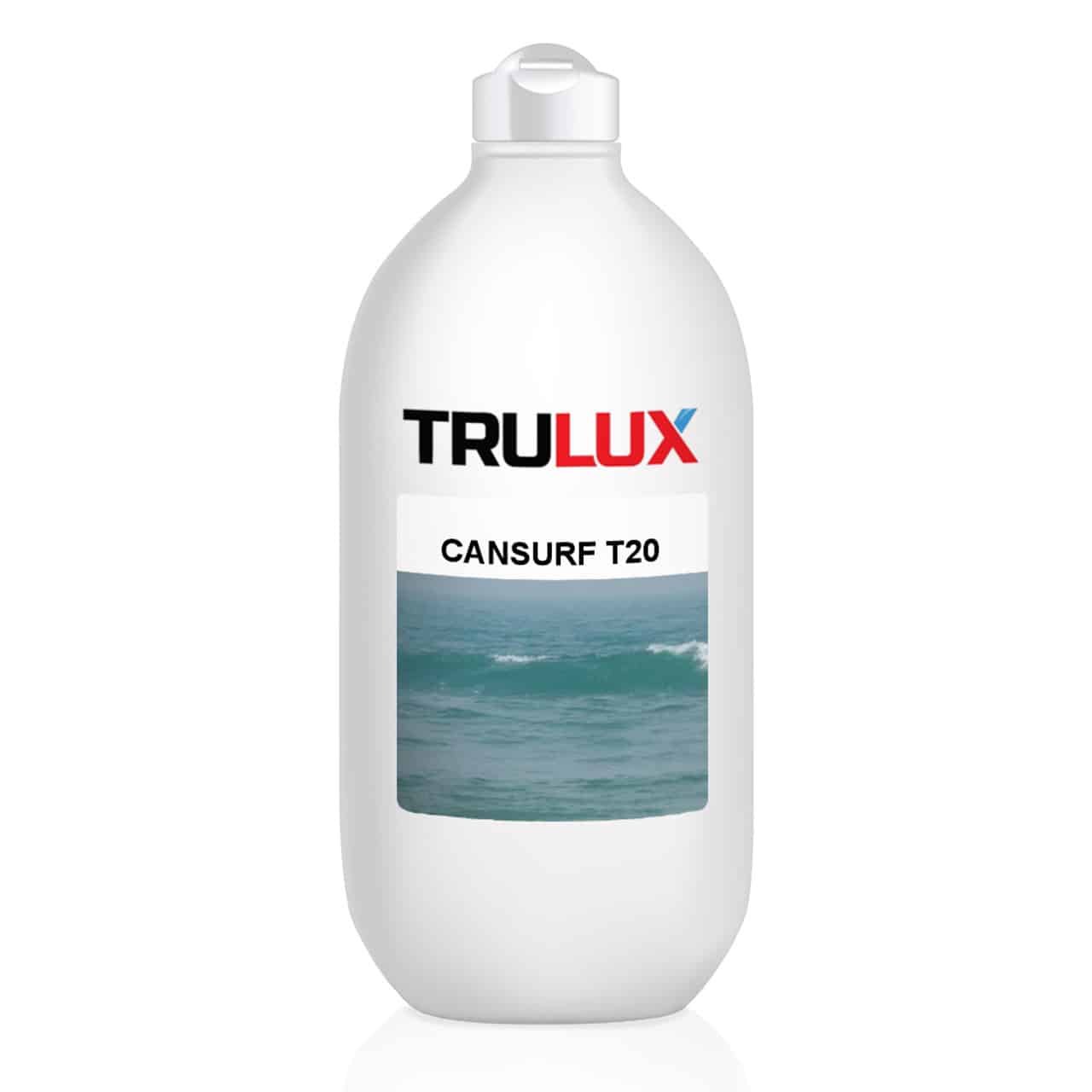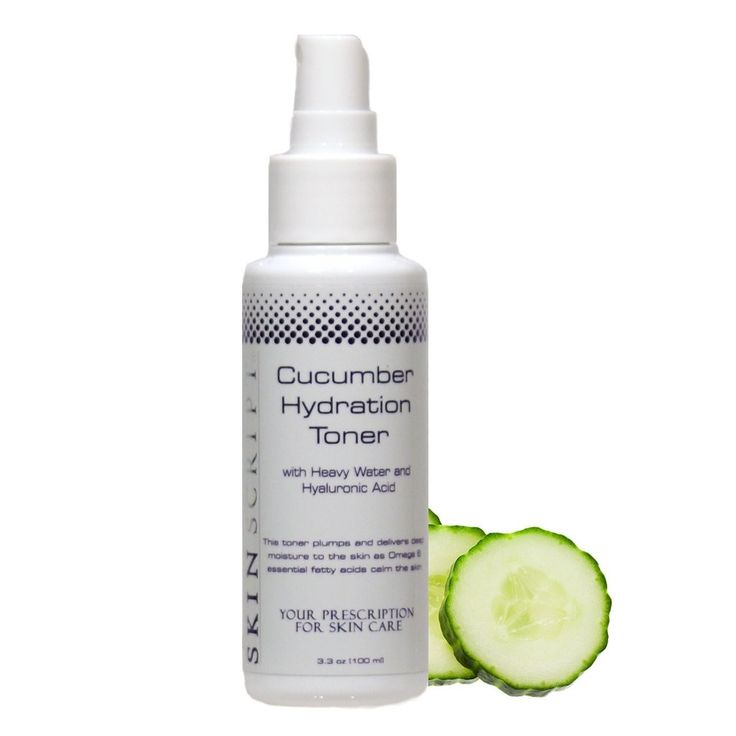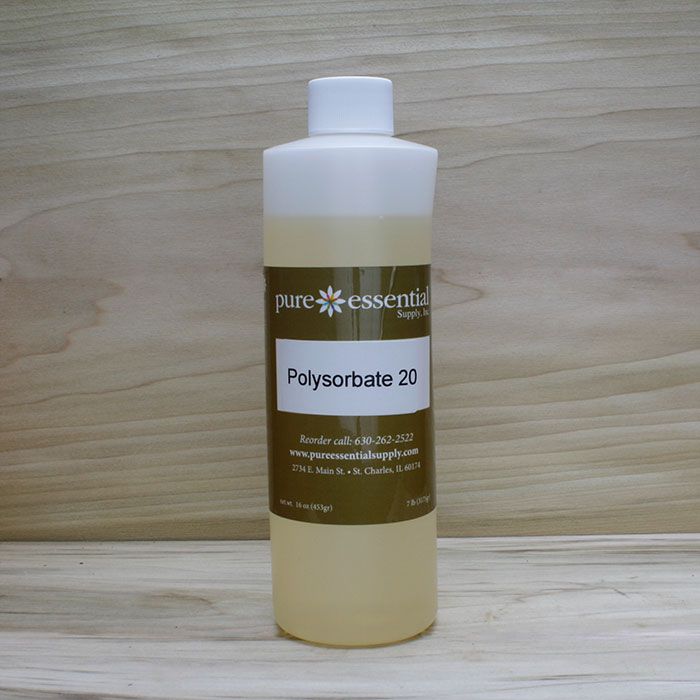What Preservatives Are Used In Potato Chips
Ingredients commonly used in preparing traditional potato chips, in addition to the potato ingredients, include shortening used as a frying medium salt and sometimes other seasonings antioxidants preservatives such as ascorbic acid, sodium phosphate, sodium bisulfite emulsifiers and sufficient added dextrose to
Whats Your Skin Snapshot
As I’ve often said, if you were exposed to this ingredient only once in awhile, you likely would have no reason to be concerned. The problem is that most of us use 10 or more products a day, several times a day, every day. If even a couple of those has polysorbate-20, the exposure could be adding up, especially if it’s penetrating the skin.
The concern is even greater for young children.
Why Polysorbate 20 Is The Core Ingredient For Production Of Cosmetics
As per testing and results of the organization named as all-new direction aromatics , polysorbate could be used for outer skin products manufacturing and its used because it gives of following reasons.
- It Combines with non-soluble parts
- Create foam in cleansing products
- Maintain beauty product clarity
- Gently soothes skin and help in deep cleansing
- Increase the spreadability of products on the skin
You May Like: Concealer That Doesn’t Dry Out Skin
What Is Polysorbate 20 Made Of
When Sorbitol a sugar alcohol that can be derived from either a vegetable or a fruit source is treated with 20 moles of Ethylene Oxide, the chemical reaction results in Sorbitan Monolaurate, which is also known as a Polysorbate . Solubilizer is a water-soluble emulsifier, which binds water and oil together.
Polysorbate 20 is a gentle, oily, liquid cosmetic additive that functions as a nonionic surfactant and wetting agent that enhances the spreadability of liquids. As a solubilizer, it helps both essential oils and fragrance oils to attach to various types of cosmetic bases, including liquid, cream, and gel bases, and thereby prevents the oils and bases from separating. As a dispersant, it also helps to diffuse oils throughout water and to prevent the oils from clumping or settling. As an anti-static agent, Polysorbate 20 helps to reduce and prevent the buildup of static charges. Furthermore, it is a thickener as well as a viscosity modifier, which helps prevent changes to a products viscosity when it is subjected to varying room temperatures, such as extreme cold or heat.
What Exactly Is Polysorbate 20 And How Is It Used

Polysorbate 20 is a lauric acid with an approximate hydrophilic-lipophilic balance of 16.7. Polysorbate 20 also known as tweens, acts as a solubilizer. It helps both perfume and essential oils attach to different cosmetic bases such as Gels, liquid, and cream bases as this prevent the oils from separating. It breaks up liquid, helps diffuse oils throughout the water, and prevents the oils from pooling together.
At the point when Sorbitol a sugar liquor that can be gotten from either a vegetable or an organic product source is treated with 20 moles of Ethylene Oxide, the compound response brings about Sorbitan Monolaurate, which is otherwise called a Polysorbate . Solubilizer is a water-dissolvable emulsifier, which ties water and oil together.
Polysorbate 20 is a delicate, sleek, fluid corrective added substance that capacities as a nonionic surfactant and wetting operator that upgrades the spreadability of fluids. As a solubilizer, it helps both fundamental oils and aroma oils to append to different kinds of corrective bases, including fluid.
You May Like: Thick Dry Skin On Feet
What Is Polysorbate 20 In Skin Care
In its original form, polysorbate is a harmless sorbitol, which is a sugar alcohol. For its use in personal care products, however, it’s treated with ethylene oxide. Thus, the name polysorbate 20, because it’s treated with 20 parts of ethylene oxide.
The result is an ingredient used as an emulsifier in cosmetic creams, lotions, cream deodorant, baby oil, sun lotion, etc. It is used to help mix oil and water.
Is Polysorbate 60 Safe
The United States Food and Drug Administration allows polysorbate 60 to be directly added to food as a flavoring agent or as a multipurpose additive. The safety of polysorbate 60 has been assessed by the Cosmetic Ingredient Review Expert Panel, a group responsible for evaluating the safety of skincare and cosmetic ingredients. The Expert Panel evaluated the scientific data and concluded that polysorbate 60 was safe as used in cosmetics and personal care products.
Despite the approval of polysorbate 60 by the CIR Expert Panel, there are concerns about the presence of ethylene oxide in this ingredient. This is because the process of ethoxylation may lead to contamination with 1,4-dioxane, a potentially dangerous by-product. 1,4-dioxane is a known animal carcinogen that penetrates readily into the skin. According to the National Toxicology Program, 1,4-dioxane is reasonably anticipated to be a human carcinogen. It has also been linked with skin allergies. However, the potential presence of 1,4-dioxane can be controlled through purification steps to remove it before blending polysorbate 60 into cosmetic formulations.
References:
You May Like: Does Skin Cancer It H
What Is Polysorbate 60
Polysorbate 60 is a synthetic ingredient that is used in cosmetics and skincare to improve the texture and sensory feel of formulations. It is used in products as a surfactant, emulsifier, and solubilizer.
Polysorbate 60 is produced by the ethoxylation of sorbitan. Sorbitan is the dehydrated form of sorbitol, a sugar alcohol that can naturally be found in some fruits. Ethoxylation is a chemical reaction in which ethylene oxide is added to a substrate, in this case, sorbitan. Sorbitan is reacted with 60 units of ethylene oxide, hence the 60 in the ingredient name. The final step is the reaction with fatty acids obtained from vegetable fats and oils, such as lauric acid, palmitic acid, stearic acid, or oleic acid. In addition to its function in cosmetics, polysorbate 60 can be used to prepare a wide variety of products in the food and pharmaceutical industries.
What Is Polysorbate 80
Polysorbate 80 is a skincare ingredient used in cosmetics and personal care products to improve the texture of products. Polysorbate 80 is used as a surfactant, emulsifier, and solubilizer, helping to produce smooth, easy to apply skincare and body care products. While the texture of the product is mainly a sensory, it is important to also help the product to spread easily deliver the key ingredients evenly to the skin.
Polysorbate 80 is produced by the ethoxylation of a molecule called sorbitan. Sorbitan is the dehydrated form of sorbitol, a sugar alcohol that can naturally be found in some fruits. Ethoxylation is a chemical reaction in which ethylene oxide is added to a substrate, in this case, sorbitan. Sorbitan is reacted with 80 units of ethylene oxide, which is where the 80 in polysorbate 80 comes from. Polysorbate 80 exists as a thick, water-soluble yellow liquid.
What are the Best Skin Care Products of 2022?
Polysorbate 80 is similar in function to polysorbate 20, and 60 which are used in skincare and cosmetic products as well.
In addition to its function in cosmetics, polysorbate 80 can be used to prepare a wide variety of products in the food, drug, textile, and metalworking industries.
Also Check: Is Squamous Cell Carcinoma Slow Growing
Use Of Polysorbate In Cosmetics:
Solubilizer Polysorbate 20 can be used as a viscosity modifier, wetting agent, and as dispersing agent. It is the final chemical that is needed to mix fragrance oil with water-based cosmetic products like baby shampoo, Foundation, Body spray, Lotion, Face creams, Mascara, lipstick, Sunblock and Baby skincare products, because of its very less eye irritation. Polysorbate solubilizer act as binder and keep intact to fragrance and product material. This property gives cosmetics a clear look. Basic proportion for general usage is 1 ratio 1. That means Mix oil, fragrance and Solubilizer in equal quantities. Blend them and add this slurry to your cosmetic product this will retain its transparent appearance.
Become A Member To Read This Article In Full
Your membership includes:
- Full Site-Wide Access – to all articles, reviews, features + ingredient research
- Exclusive Access – spa services, treatments, life coaches + MORE
- Cosmetic Concierge – personal consultations with Marta
- Early Access – to new product launches
- First to Know – about new ingredients + innovative products
- Bonus Rewards + Gifts
Also Check: What Is Metastatic Ductal Carcinoma
What Soft Drinks Have Benzene
The five drinks listed by the government were Safeway Select Diet Orange, Crush Pineapple, AquaCal Strawberry Flavored Water Beverage, Crystal Light Sunrise Classic Orange and Giant Light Cranberry Juice Cocktail. The high levels of benzene were found in specific production lots of the drinks, the FDA said.
Polysorbate 80 Vs Polysorbate 20

There is very little difference between polysorbate 80 and polysorbate 20. They have similar chemical structures, with the only difference being that the type of fatty acid that is attached. In polysorbate 20 it is lauric acid and in polysorbate 80 it is oleic acid. This difference has little effect on the abilities when used as a food or cosmetics additive. It makes polysorbate a slightly weaker emulsifier than polysorbate 80. This means that polysorbate 80 is better at emulsifying heavier oils. Making polysorbate 80 better suited as a food additive and polysorbate 20 more suitable for cosmetic formulations that utilize lighter oils.
Also Check: What Is Cystic Renal Cell Carcinoma
How To Tell If A Product Has Polysorbates
Theres more than one kind of polysorbate used today. It could be listed as polysorbate followed by a number or under these synonyms: Liposorb PEG sorbitan laurate Tween 20 PEG-# sorbitan laurate Polyethylene glycol sorbitan laurate , PEG-80 sorbitan laurate, monododecanoate poly derivs, sorbitan, polyoxyethylene sorbitan monolaurate polyoxyethylene sorbitan monolaurate, polysorbate-20, sorbimacrogol laurate 300, sorbitan, monododecanoate, poly derivs. .
Is Polysorbate 20 Safe
The Cosmetic Ingredient Review Expert Panel, a group responsible for evaluating the safety of skincare and cosmetic ingredients evaluated the scientific data and concluded that polysorbate 20 is safe for use in cosmetic formulations.
Despite the approval of polysorbate 20 by the CIR Expert Panel, there are concerns about the presence of ethylene oxide in this ingredient. This is because the process of ethoxylation may lead to contamination with 1,4-dioxane, a potentially dangerous by-product. 1,4-dioxane is a known animal carcinogen that penetrates readily into the skin. According to the National Toxicology Program, 1,4-dioxane is reasonably anticipated to be a human carcinogen. It has also been linked with skin allergies. However, the potential presence of 1,4-dioxane can be controlled through purification steps to remove it before blending polysorbate 20 into cosmetic formulations.
You May Like: Does Melanoma Metastasize To The Brain
How To Avoid Polysorbate 20 In Skin Care
To avoid this ingredient, just read the ingredient lists on labels. It’s easy enough to find. Better yet, prioritize shopping at whole foods stores, organic shops, and online stores that offer natural and nourishing alternatives.
You can also visit our online store for products that are free of Polysorbate 20 and safe for you and your family.
How To Avoid Polysorbates
Read the labels on personal care products, tampons, and cleaners to avoid polysorbates whenever possible. Be sure to look for synonyms used to designate the presence of polysorbates. In cleaning products, where manufacturers arent required to list all their ingredients on product labels, choose toxic chemical free alternatives that dont contain toxic surfactants and fragrances. Also remember that because there are no federal criteria dictating standards for what makes a cleaning product natural, so-called natural cleaners may contain this toxic chemical. Its safer to go with options using only simple, non toxic ingredients.
In personal care products, do your own research on a products ingredients by using a resource such as the Environmental Working Groups Skin Deep product database. Choose unscented tampons .
References:
EWGs Skin Deep Cosmetics Database . Polysorbate-20. Available online: December 20, 2016.
CDC . Unusual Syndrome with Fatalities among Premature Infants: Association with a New Intravenous Vitamin E Product. Available online: December 20, 2016.
EWGs Guide to Healthy Cleaning . Polysorbate-20. Available online: December 20, 2016.
EWGs Guide to Healthy Cleaning . Polysorbate-40. Available online: January 23, 2107.
You May Like: What Is The Treatment For Lobular Carcinoma In Situ
Polysorbate Is Used In The Following Products:
Foundation, Shampoo, Body spray, Body Lotion, Bath oil, Face creams, lipstick, Mascara, Sunblock, Baby skincare products, Face Wash, Toner, Face Cream, Sunblock, salves, linen, and room spray.
Polysorbate 20 is used as a wetting agent in mouth drops such as Ice Drops, helping to provide a spreading feeling to other ingredients like SD alcohol and mint flavor.
Contraindications For Solubilizer Polysorbate 20
As with all other New Directions Aromatics products, Solubilizer Polysorbate 20 Raw Material is for external use only. It is imperative to consult a medical practitioner before using this product for therapeutic purposes. Pregnant and nursing women as well as those with sensitive skin and an allergy to coconuts are especially advised not to use Solubilizer Polysorbate 20 Raw Material without the medical advice of a physician. This product should always be stored in an area that is inaccessible to children, especially those under the age of 7.
Prior to using Solubilizer Polysorbate 20 Raw Material, a skin test is recommended. This can be done by dissolving 1 tsp Solubilizer Polysorbate 20 Raw Material in 1 tsp of a preferred Carrier Oil and applying a dime-size amount of this blend to a small area of skin that is not sensitive. Solubilizer Polysorbate 20 must never be used near the inner nose and ears or on any other particularly sensitive areas of skin.
Potential side effects of Solubilizer Polysorbate 20 include skin irritation. In the event of an allergic reaction, discontinue use of the product and see a doctor, pharmacist, or allergist immediately for a health assessment and appropriate remedial action. To prevent side effects, consult with a medical professional prior to use. In some products with Solubilizer Polysorbate 20, the water and oils may separate however, they will become re-emulsified upon shaking.
IMPORTANT:
Also Check: How Firm Is Nodular Melanoma
Is Polysorbate 80 Vegan
Polysorbate 80 is a vegan ingredient. It is derived from vegetable oils and doesnt use animal or animal byproducts in its production.
If you are looking for a vegan product make sure to check the other ingredients in the formulation and ensure that the brand is cruelty-free.
Historically there are concerns about the presence of ethylene oxide and the ethoxylation process by which this ingredient is made. This concern stems from the production of 1,4-dioxane during the ethoxylation process. 1,4-dioxane has been linked to some forms of cancer. This is concerning however, manufacturing processes have been put in place to ensure that 1,4-dioxane is not present in the final product and polysorbate 80 is measured for impurities in the manufacturing process. It is also important to note that many of the studies that informed the link made between cancer and 1,4-dioxane specifically tested 1,4-dioxane not polysorbate 80.
Polysorbate 80 has been known to cause some irritation and sensitization in some skin types. This is most likely to occur in skin types that are prone to irritation and sensitivity. If your skin is sensitive then it may be beneficial to avoid this ingredient. While this reaction is rare, it may be best to have a discussion with your dermatologist or doctor to determine whether it may be potentially contributing to the sensitivity you are experiencing.
How To Use Polysorbates

Polysorbates help prevent the need for âshake before useâ products and perfumes, but depending on the specific makeup of your essential oils can cause the liquid to become a little cloudy. Youâll have to experiment with your particular essential oil blend to figure out which oils cause cloudiness and which donât.
The two most common polysorbates for perfumery are Polysorbate 20 and Polysorbate 80. Polysorbate 80 tends to be a little âstrongerâ but a little darker, so if you can achieve your desired solubility with Polysorbate 20 that is usually the preferred choice. It works well with essential and fragrance oils and thus is the primary choice for perfumes and colognes. It does not tend to foam, and is considered to be slightly more gentle.
Use polysorbate at a 1:1 ratio with your essential oils, mixing them together. Then add in to your water or alcohol base. Start with a small tester amountâyou may need a 2:1 or even 3:1 ratio, again depending on the specifics.
In our room spray we used ½ gallon of a Body & Linen Spray and added 3 tablespoons of both our essential oil blend and our Polysorbate 20.
Read Also: What Is Bha In Skin Care
Why Is Polysorbate 20 Bad For Your Skin
The problem with any ingredient that is treated with ethylene oxide is that it can then become contaminated with 1,4-dioxane, a potentially dangerous toxicity ingredient. In fact, 1,4-dioxane in cosmetics is a known animal carcinogen that penetrates readily into the skin. This ingredient has also been linked with skin allergies. There is so much concern about this contaminant that a class-action lawsuit was filed in New Jersey against manufacturers of children’s bath and personal-care products. Defendants manufactured, distributed, marketed, or sold products containing formaldehyde and 1,4-dioxane.
More Concerns About 14
The Organic Consumers Organization, adopting information from the Campaign for Safe Cosmetics, released a fact sheet on 1,4-dioxane. They report that the levels of 1,4-dioxane found in many personal care products are 1,000 times higher than those found to cause cancer in animal studies. They add that according to the FDA, Skin absorption studies demonstrated that dioxane readily penetrates animal and human skin from various types of vehicles.
This can be especially concerning if you’re taking a hot bath or shower. As your pores open up, your skin could be taking in even more of the 1,4-dioxane in the product.
Read Also: Best Face Makeup For Mature Skin